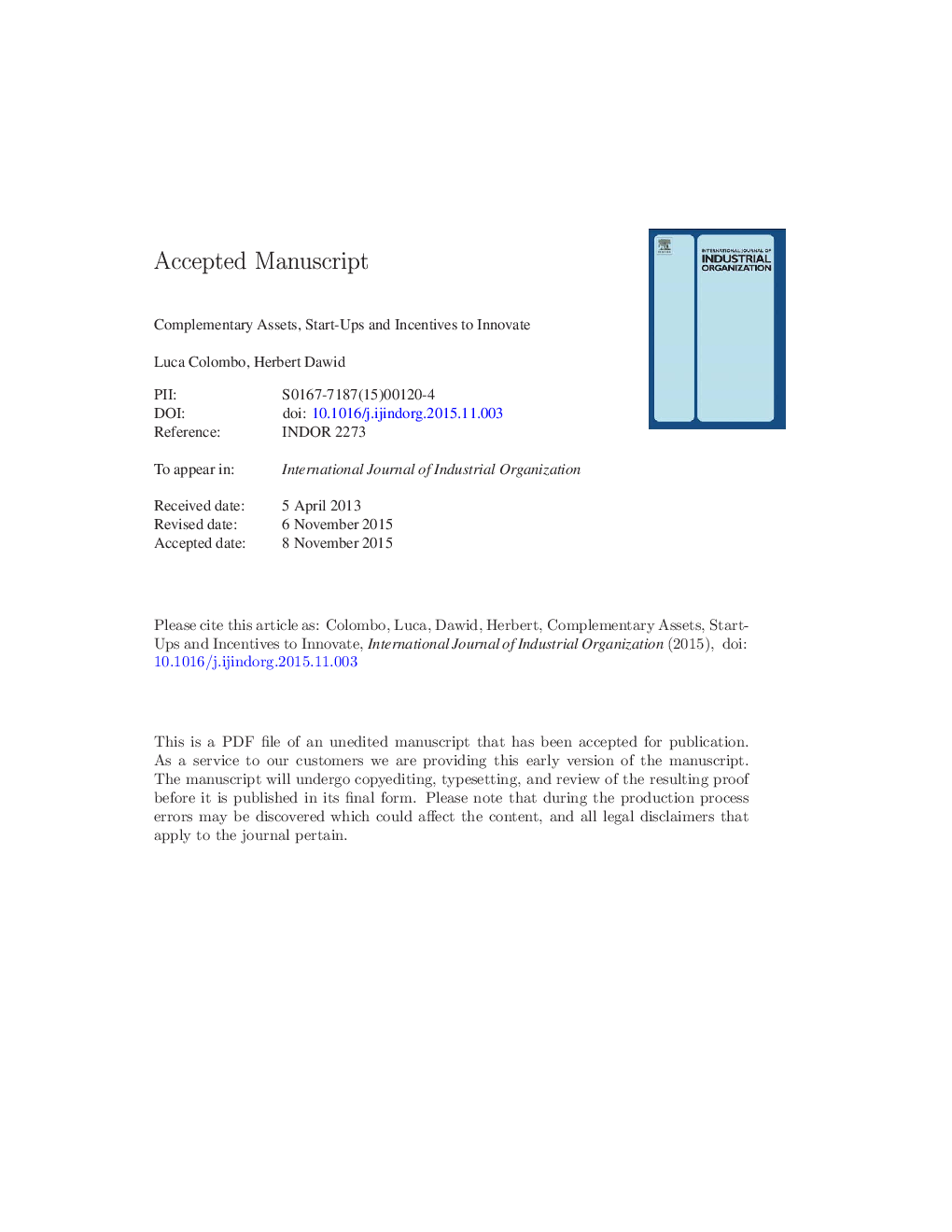| Article ID | Journal | Published Year | Pages | File Type |
|---|---|---|---|---|
| 5077929 | International Journal of Industrial Organization | 2016 | 48 Pages |
Abstract
We examine to what extent market conditions facilitating start-up formation affect firms' R&D investment and profits. We consider a model in which R&D efforts of an incumbent firm generate partly tacit technological know-how embodied in a key R&D employee, who might use it to form a start-up. The availability of complementary assets influences whether new firms are created and determine expected profits for start-up's founders. A large availability of complementary assets has the direct effect that the generation of start-ups is fostered. However, as a strategic effect, the incentives of incumbents to invest in R&D may be reduced because of the increased danger of knowledge loss occurring through start-up formation. We characterize the effects of an increase in the availability of complementary assets, showing that counter-intuitively there are cases in which it induces an increase in incumbents' R&D investment.
Related Topics
Social Sciences and Humanities
Economics, Econometrics and Finance
Economics and Econometrics
Authors
Luca Colombo, Herbert Dawid,
